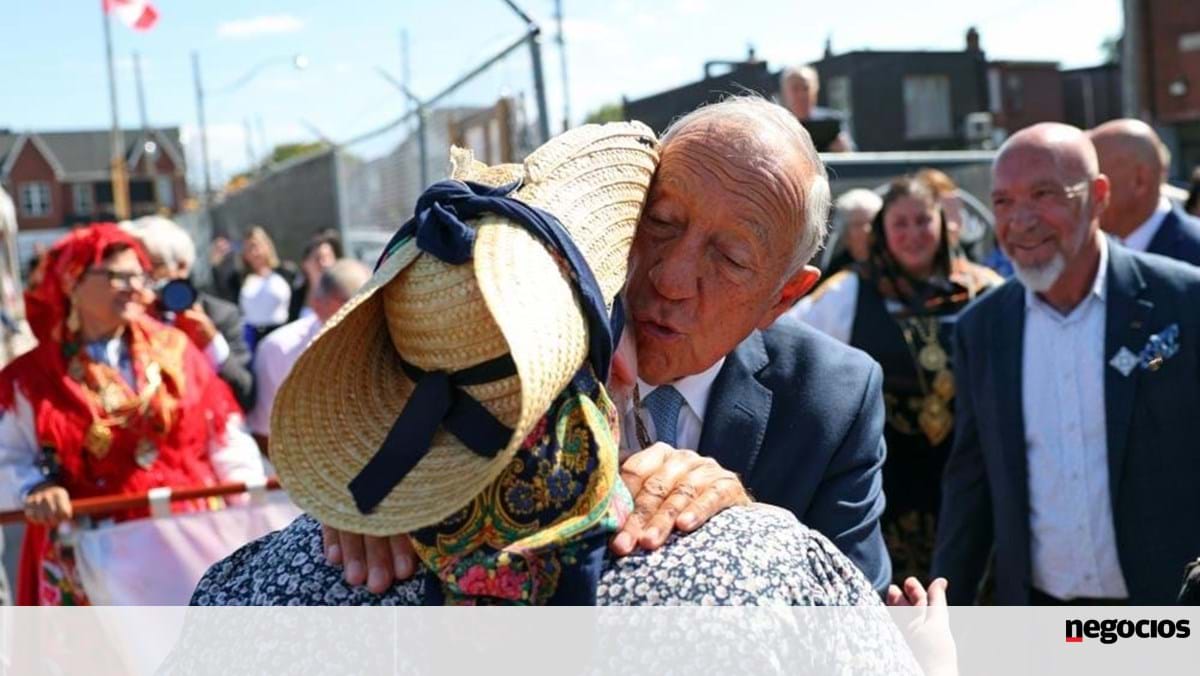China’s Foreign Ministry last week asked embassies not to use their exterior walls to display “political propaganda”, Nabila Massrali said in a statement. Authorities stressed the need “to avoid disputes between countries”, but did not define what would be considered propaganda, the spokeswoman added.
The request does not refer to Ukraine, according to Massrali. But flags and posters put up by the embassies of Canada, France, Germany and other Western countries are the only public displays at most foreign missions, apart from tourist advertisements.
A sign in the colors of the Ukrainian flag, placed on the wall of the Canadian embassy, facing one of the busiest streets in Beijing, reads the message “We are together with Ukraine”, written in Chinese.
The same message can be seen on a two-meter-high poster, placed at the entrance door of the Finnish Embassy. Several other countries placed their national flags side by side with the flag of Ukraine.
In most cases, these public displays were set up shortly after the outbreak of war. It was unclear why China had only asked for its withdrawal.
The Asian country has said it is neutral in the conflict and wants to play a mediating role, but has a “limitless” relationship with Russia and has refused to criticize the invasion of Ukraine.
A Chinese envoy visited kyiv this week and is due to visit Russia to discuss a possible “political settlement”.
Some embassies also unfurled rainbow flags during Diversity Week and the International Day Against Homophobia and Transphobia on Wednesday. These are issues considered politically sensitive by the Chinese Communist Party.
Asked about the authorities’ request, Foreign Ministry spokesman Wang Wenbin said embassies are required to “follow Chinese laws and regulations”, but gave no details.
“China requests embassies of all countries in China and representative offices of international organizations in China to perform their functions in accordance with the Vienna Convention on Diplomatic Relations or relevant international agreements,” Wang said.
Chinese envoy Li Hui met for two days with Ukraine’s Foreign Minister Dmytro Kuleba, according to the two governments.
The Ukrainian government said it had discussed “ways to stop Russian aggression”, but neither side provided details.
Li said the two governments should “create the conditions to end the war and start peace talks,” according to a Chinese Foreign Ministry statement.
Political analysts see the chances of a peace deal as low, as neither Ukraine nor Russia are ready to stop the fighting. Analysts say that by deploying an envoy, China is trying to defuse criticism of its closeness to Russian leader Vladimir Putin and alienate Washington’s European allies.
Beijing unveiled a peace plan in February that has been widely rejected by Ukraine’s allies, who insist Russian forces must first withdraw from Ukrainian territory.

“Freelance communicator. Hardcore web practitioner. Entrepreneur. Total student. Beer ninja.”


:strip_icc()/s02.video.glbimg.com/x720/11852909.jpg)




